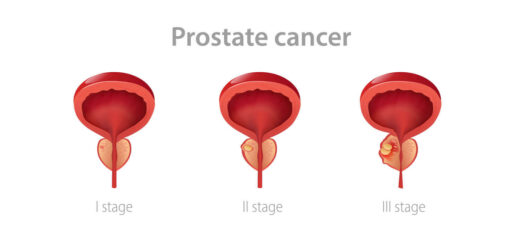Every year, thousands of men around the world are diagnosed with prostate cancer. It’s one of the most treatable cancers especially when caught early. Yet despite the effectiveness of modern treatments, many men delay diagnosis, avoid discussions, and postpone critical decisions about their care.
Why?
Not because they don’t care about their health. Not because they aren’t intelligent or aware of the risks. But because prostate cancer touches something deeper, a place where fear, pride, uncertainty, and identity collide.
This is the conversation we’re not having enough: Why do men wait? And what happens when they do?

Prostate Cancer Doesn’t Always Come with Symptoms
Part of the problem lies in the nature of the disease itself. Prostate cancer often develops silently, especially in its early stages. Unlike cancers that cause obvious pain or sudden weight loss, prostate cancer may grow slowly without noticeable symptoms for years.
By the time signs like frequent urination, difficulty urinating, or pelvic discomfort appear, the cancer may have already progressed.
But even when symptoms show or a high PSA level is detected some men choose to wait. They delay follow-up tests, avoid biopsies, or put off choosing a treatment plan.
And the reasons behind these delays are far more human than medical.
The Fear of Confirmation
For many men, seeing a doctor for a prostate exam or PSA test means opening the door to a frightening possibility.
There’s a quiet belief that “no news is good news” and as long as nothing is confirmed, life can go on uninterrupted.
But this mindset comes at a price.
A 2023 study in the Journal of Urology revealed that nearly 1 in 4 men delayed seeking treatment for prostate cancer by six months or more after initial warning signs. In many cases, the delay was psychological, not logistical.
Fear of bad news can be paralyzing. But it’s also counterproductive. Early-stage prostate cancer has a nearly 100% five-year survival rate, while advanced cases are far more difficult to treat.
Masculinity, Identity, and Denial
Prostate cancer isn’t just a physical diagnosis it often challenges a man’s sense of identity. The prostate plays a direct role in sexual function and urinary control. When it’s under threat, many men experience an unspoken fear: What if I’m not the man I used to be?
This can lead to deep denial.
Some men equate seeking help with weakness. Others struggle with the idea of surgery, especially when faced with potential side effects like erectile dysfunction or incontinence. Rather than confront the fear, they push it aside.
And culturally, we haven’t always given men the tools or permission to talk about these fears openly.
“I Can’t Afford to Be Sick Right Now”
For working men, caregivers, or business owners, time off for treatment can feel impossible. The thought of hospital stays, recovery periods, or medical bills can trigger overwhelming anxiety.
In some cases, men delay treatment because:
- They fear losing income
- They worry about burdening their family
- They lack insurance or fear high out-of-pocket costs
- They don’t know where to turn for trusted, affordable care
Medical tourism especially to countries like Turkey has helped alleviate some of these concerns, offering world-class prostate cancer care at a fraction of the cost found in the US or UK. But even then, the first step admitting you need help can be the hardest.
The Emotional Consequences of Waiting
Delaying treatment doesn’t just affect physical health. It also weighs heavily on mental and emotional well-being.
Men who avoid diagnosis or postpone care often experience:
- Chronic stress and sleep disturbances
- Mood swings, irritability, or emotional detachment
- Strained relationships with spouses and family
- Reduced productivity or focus at work
The internal dialogue becomes toxic:
What if I’ve waited too long?
What will people think of me?
Am I still desirable? Still strong?
What if I’m not ready for the answers?
It’s a silent cycle that breeds more isolation and fewer solutions.
“But I Feel Fine”
One of the most dangerous beliefs about prostate cancer is that you’ll know when something’s wrong.
In reality, many men feel completely fine until the cancer spreads beyond the prostate. At that point, treatment becomes more invasive, and survival rates drop sharply.
This is why proactive care matters, not reactive crisis management.
A Shift Is Happening Slowly, But Surely
The good news is that the stigma around men’s health is finally starting to shift. Public figures, advocacy groups, and survivor communities are bringing prostate cancer into the open. They’re redefining strength not as the ability to hide fear, but as the courage to face it head-on.
Hospitals like Erdem Hospital in Istanbul are also helping bridge the gap between awareness and action by:
- Offering bilingual patient coordinators who simplify the medical process
- Providing rapid diagnostics and access to both open and minimally invasive surgery
- Supporting men emotionally before, during, and after treatment
- Creating tailored packages for international patients concerned about cost or travel logistics
For men who feel stuck between doing something and doing nothing, that kind of support can make all the difference.
What Needs to Change
So how do we address the unspoken barriers that keep men from seeking timely care?
Here are five ways we can change the narrative:
1. Normalize Conversations Around Men’s Health
Let’s talk about prostate cancer the way we talk about high cholesterol or knee pain. No judgment. Just facts, support, and action.
2. Educate Without Shaming
Fear-based messaging can backfire. Instead, focus on empowerment: early detection leads to better outcomes and faster recovery.
3. Involve Partners and Families
Spouses, children, and friends can be powerful allies. Encourage men to open up to the people they trust most.
4. Highlight Survivors, Not Just Statistics
Real stories inspire action. Hearing from men who’ve gone through treatment and thrived can be more persuasive than any brochure.
5. Make Access Easy and Human
Medical systems can be cold, confusing, and overwhelming. Care providers must prioritize clarity, empathy, and dignity at every step.
Time Is a Gift Don’t Waste It
Delaying prostate cancer treatment doesn’t make the fear go away. It only increases the risk of facing something far worse than a diagnosis: regret.
Whether it’s scheduling a PSA test, booking a consultation, or simply talking about your concerns, taking the first step is always the hardest but it’s also the most powerful.
Because the conversation we’re not having? It could be the one that saves a life, maybe even yours.
A Place Where Action Meets Compassion

At Erdem Hospital, we understand the emotional weight behind every treatment decision. That’s why we offer patient-first care that doesn’t just treat the disease it supports the man behind the diagnosis.
From cutting-edge prostatectomy procedures to emotional counseling and personalized recovery plans, our international team is ready to help you move forward with confidence.
Schedule your free consultation today and take the first step toward clarity, strength, and peace of mind.